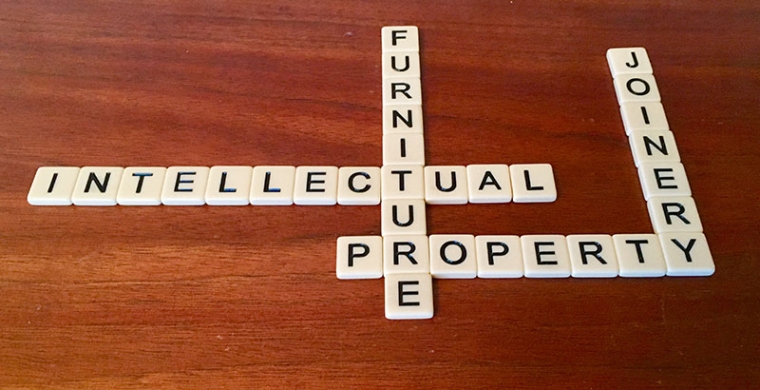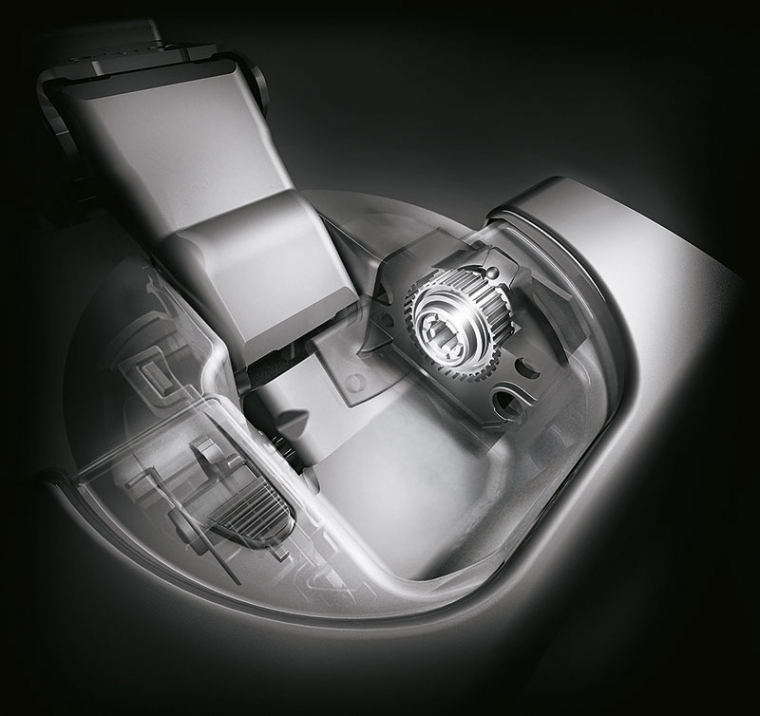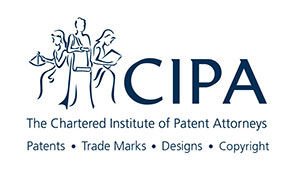Simon Haslam of Abel & Imray – a firm of UK and European patent attorneys – explains on behalf of the Chartered Institute of Patent Attorneys (CIPA) how your business can obtain IP protection outside the UK in the third of this series of six articles looking at IP.
Furniture exports from the UK have been growing over recent years and look to exceed £1b in 2018. For many businesses international trade is becoming increasingly important and being able to obtain and enforce IP rights outside the UK is crucial to this overseas strategy.

If you’re currently only protecting your IP in the UK/EU, would your business be bothered about a Chinese manufacturer supplying their own domestic market or exporting to the US? If there are plans to expand your business outside the UK/EU in the next five years, are you taking the right steps now to protect your future business opportunities?
Free protection
Some IP rights (such as copyright and European Union unregistered design right) exist when something is created without any need to register those IP rights, either in the UK or abroad. Copyright protects drawings, paintings and works of artistic craftsmanship (such as iconic furniture designs, like the Eames DSW chair, the E1027 side table and the Egg chair). EU unregistered design right can protect the 2D or 3D outward appearance of a product, or part of it including for example the colours, shape, texture, pattern and/or materials of the product or its ornamentation.
Obtaining these unregistered rights is automatic and therefore free but while such rights are enforceable in countries other than the UK, there are some aspects of this free protection that you should bear in mind. When wanting to assert or enforce the rights against others, you will have to be able to prove that you own those rights. Keeping good records of authorship and design evolution is key here. There is also no infringement of such rights, unless it can be shown that there has been copying; you cannot stop someone from trading a copyright work if they made the copyright work independently, ie, without copying your work.
Registering rights abroad
Registered IP rights (such as patents, registered trade marks and registered designs) allow you to take action against third parties without having to show copying, and independent creation is no defence to infringement of those registered rights.

Registered IP rights are territorial and so only provide protection in the territories in which they are registered. For example, you cannot enforce a French patent in the UK. However, it is possible to obtain registered protection in many countries through one application.
For example, you can register both trade marks and designs in all of the countries in the EU via a single design or trade mark application. Post-Brexit, the protection afforded by these EU IP rights will still extend to the UK. Protection can be obtained outside the EU, and may be obtained for some countries in one application by making use of the International trade mark (Madrid) and design (Hague) systems.
Kartell has made use of the EU registered trade mark and design systems, obtaining registered trade mark protection for the Kartell word mark to stop third parties from using the same or similar names, and registered design protection for the shape and appearance of many items of furniture to stop third parties from making products which give the same overall appearance as the designs which are registered.

Julius Blum GmbH has over 4000 patents and patent applications, filed in many different countries – USA, China, Taiwan, Malaysia and Europe for example – for furniture, particularly in relation to the mechanisms which facilitate movement of different parts of the furniture.
Under the European Patent Convention (the EPC – note not an EU treaty), it is possible to get a European patent which can be put into force in up to 44 countries including all those presently in the EU and more. Brexit will not have an effect on the European patent under the EPC nor your patent attorney’s ability to file and prosecute them.
Where, when and how to file/get protection?
Obtaining IP protection outside the UK can cost a good deal. You therefore need to make sure that any IP protection you obtain is proportionate and pays its way. There are many ways of making money from your IP and these are discussed in https://www.furnitureproduction.net/resources/articles/2018/04/593211214-how-make-money-ip.
In assessing how to balance the cost of IP protection versus potential gain, you will need to consider your markets and potential markets, those of your competitors and those of your licensees. Sometimes it will make sense to obtain IP protection in those countries where competing manufacturers will be based. Other times you might want to get protection in those countries where most sales occur. And sometimes, both will be advisable.
It is important to apply for patent and design protection in advance of making any sales or other non-confidential disclosures, as the options for getting protection can be limited. In some cases – such as registered designs in the EU or US – there may exist a grace period of, say, 12 months, allowing a company to still obtain valid protection.
The first step to obtaining foreign protection is to file a UK application, which can secure a filing date – a priority date – for the basis of a future foreign right. UK applications can be relatively cheap, even with professional advice, because of the very low official fees payable at the UK Intellectual Property Office.
For most businesses in the furniture/joinery industry in the UK, the most valuable form of IP protection abroad will be rights that cover Europe. Obtaining European-wide IP rights can be surprisingly cost-effective. Even with professional advice and assistance included, an EU-wide registration of a design can be obtained for around £1000 providing for years of monopoly rights across all of the EU – renewable for up to four further five-year periods.
Your patent attorney or trade mark attorney will be able to advise you on how best to protect your IP outside the UK and what routes you might take to achieve that.

If you would like further information on any of the points discussed, or have a query on any intellectual property matter, Simon would be happy to assist. Email him at [email protected]. A patent attorney local to you can be found via CIPA’s website at www.cipa.org.uk/find-a-patent-attorney/

Simon Haslam has wide experience of the drafting and prosecution of patent applications in the European Patent Office and in the other major industrial countries. He has extensive experience of intellectual property agreements, with particular involvement in patent licensing and other patent-related agreements.







